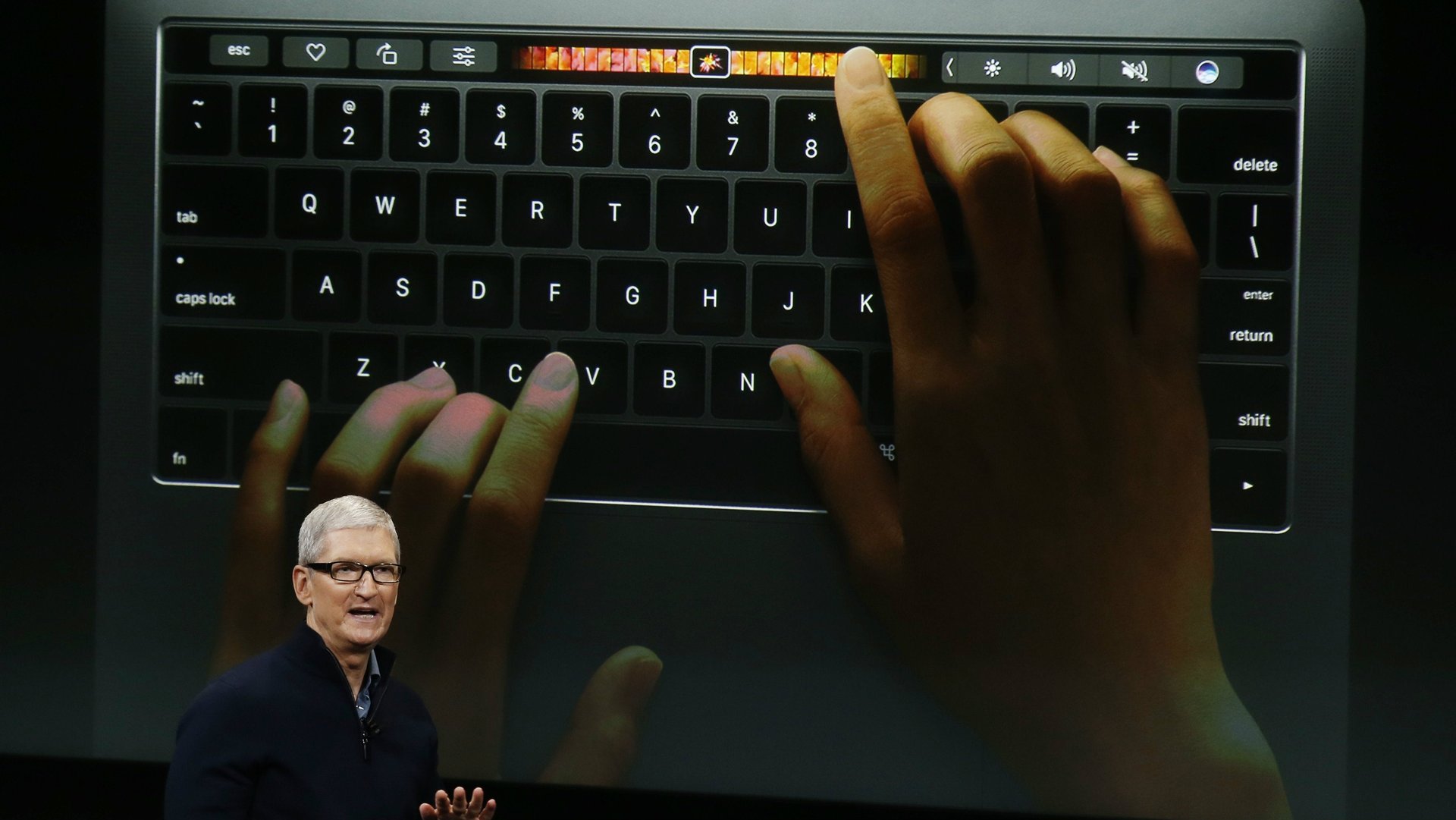Apple screwed up its new MacBook Pro so bad that developers are now considering Windows computers
This post originally appeared at DevTeamSpace Blog.


This post originally appeared at DevTeamSpace Blog.
The new MacBook Pro is proof that Apple has stopped making laptops for developers. Here’s why:
1. No “escape” and “function” keys
Apple’s Oct. 27 event confirmed many of the rumors surrounding the long-awaited refresh of the Macbook Pro line. The escape and function keys on the laptops have been abandoned in favor of a touch bar that changes depending on the application that is being used. The last time the Macbook Pro got a major update was a shocking four years ago, and many publications are celebrating the new design. However, the lack of physical escape and function keys is a disaster for one major set of Apple’s customers—developers.
Let’s take a look at numbers:
There are about 19 million developers in the world. And Apple has managed to sell about 19 million Macs over the past four quarters. What a coincidence!
Yes, developers are drawn toward Apple products primarily for software reasons: the Unix-like operating system and the proprietary development ecosystem. But developers use those keys all the time when they’re programming. Why Tim Cook, why?
This isn’t to say that the touch bar is an inherently bad idea. You could locate it on top of the escape and function keys instead of eliminating them entirely!
2. There’s almost no improvement for the RAM and processor
The 2016 MacBook Pro ships with RAM and processor specs that are nearly identical to the 2010 model. Déjà vu?
It at least feels like that, because the MacBook Pro has had options of up to 16 gigabytes of RAM since 2010. The only difference now is that you pay for the update. And as for processors, the MacBook Pro had options with 2.4 gigahertz dual-core processors back in 2010. Anything new in 2016? Not really, well… nope.
That feels strange too, especially if you compare the price and the hardware quality to Apple’s competitors. These days it’s easy to find a Windows or Linux machine comparable to the Macbook Pro for $1,000 to $1,500. You don’t need to go far to find them—notable brands like Lenovo, HP, Asus, Samsung, and Dell all offer them. And for those who aren’t fans of Windows, Linux is always an option.
With more resources poured into Microsoft developers ecosystem and Linux distributions, developers may soon have a wide range of great operating systems that can run on pretty cheap laptops.
And to nail it: